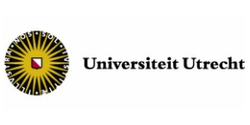PhD on Adaptive Responses to Crises: Understanding Trust, Fairness, Uncertainty
Updated: 19 Apr 2025
Are you a researcher with a background in social psychology (or related areas) and interested in new approaches to study people’s trust judgments and their fairness perceptions? And do you want to examine how this research can help humans to respond in adaptive ways to crises pertaining to important topics in society, such as radicalisation, pandemics, and climate issues? Join our team!
Your job
As part of the Gravitation project Adapt!, we are looking for a PhD candidate who will conduct methodologically innovative studies on perceived trust and fairness judgments. These studies can involve both lab and field experiments, but other types of empirical studies are also welcome.
Trust in other people and in social institutions is critically important to the effectiveness and legitimacy of a crisis response. However, people often lack the information they need to decide whether others (including abstract entities such as institutions) can be trusted and regarded as reliable interaction partners. This lack of information becomes especially poignant in times of crisis. Furthermore, under conditions of uncertainty, fairness is an important concern. For example, people want to know whether they are being treated fairly and in a just manner by parties having power over them.
Importantly, while these assumptions about trust, fairness, and uncertainty have been around for some time, solid empirical evidence is still missing. Therefore, as a PhD researcher, you will examine these issues in controlled laboratory and field experiments. Moreover, you will study how the findings thus obtained inform practical strategies for what people, groups of people, and societal institutions can do when they are navigating through various crises. This includes addressing issues of social cohesion and how people form and restore trust judgments.
You will have the following tasks and responsibilities:
- publishing peer-reviewed journal articles and write a dissertation;
- helping with events, workshops, and conferences;
- participating in project meetings, and collaborating with the other members of the research team;
- assisting with knowledge dissemination and other activities of Adapt!;
- presenting research results at national and international workshops and conferences.
Requirements:
- A (Research) Master's degree in social psychology, or another discipline relevant for Adapt!, such as history, governance, or philosophy;
- a truly interdisciplinary mindset with a willingness to learn from other fields, both in terms of methodology and content;
- a proactive approach to collaborating with other work packages in the Adapt! programme, working effectively with principal investigators, PhD candidates, and postdocs on complex, interdisciplinary projects;
- expertise in crises related to radicalisation/terrorism, climate change, and/or pandemics;
- expertise in conducting experimental research and other methods relevant for Adapt!;
- eagerness to learn and improve skills in writing academic publications and communicating research to broader audiences;
- a collaborative attitude with strong interpersonal, analytical, and organisational skills;
- preference to candidates who are fluent in both Dutch and English.
Salary Benefits:
- A position for one year, with an extension to a total of four years upon successful assessment;
- a working week of 38 hours and a gross monthly salary between €2,901 and €3,707 (salary scale P under the Collective Labour Agreement for Dutch Universities (CAO NU));
- 8% holiday bonus and 8.3% end-of-year bonus;
- a pension scheme, partially paid parental leave, and flexible employment conditions based on the Collective Labour Agreement Dutch Universities.
In addition to the terms of employment laid down in the CAO NU, Utrecht University has a number of schemes and facilities of its own for employees. This includes schemes facilitating professional development, leave schemes and schemes for sports and cultural activities, as well as discounts on software and other IT products. We also offer access to additional employee benefits through our Terms of Employment Options Model. In this way, we encourage our employees to continue to invest in their growth. For more information, please visit Working at Utrecht University.
36 - 40 hours per week
Heidelberglaan 1

